Finding therapists of color is a challenge in Phoenix. Here's why that matters
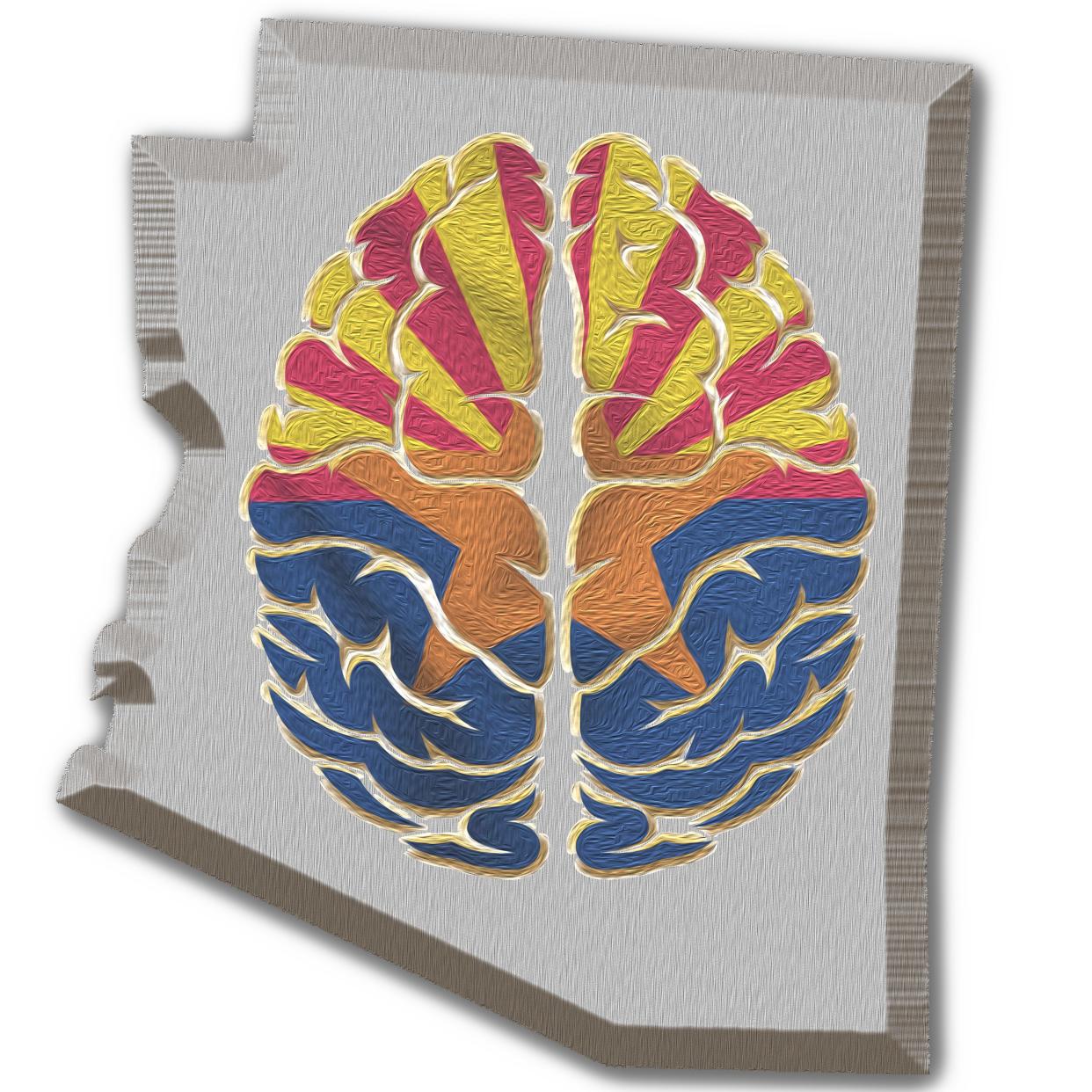
Tempe therapist Sharli Berry, who is Black, quickly developed a waiting list for patients after she went into private practice in 2017.
In an effort to help the people she was turning away, she created a group called Black Therapists in AZ.
Thanks to her networking and the ever-expanding group she formed, Berry is now able to refer patients to the few dozen other Black therapists she's connected with across Arizona. But a lot of them have waiting lists, too.
About 7% of the Phoenix population is Black, and Berry said in her estimation and experience, there are not enough Black therapists to keep up with the demand for them.
"I don't really market. I would be overwhelmed. … I would have to turn people away," said Berry, who said that many people of color seeking mental health care want to see a therapist of color. About 80% of Berry's clients are Black.
Data and anecdotal evidence suggest that while Phoenix and the U.S. as a whole are becoming increasingly diverse and multilingual, the mental health care workforce remains predominantly white and English-speaking.
A recent report from the online counseling education resource CounselingPsychology.org found that the cities where therapists most underserve BIPOC (Black, Indigenous, people of color) communities are El Paso, Memphis, Milwaukee, Phoenix and Fresno.
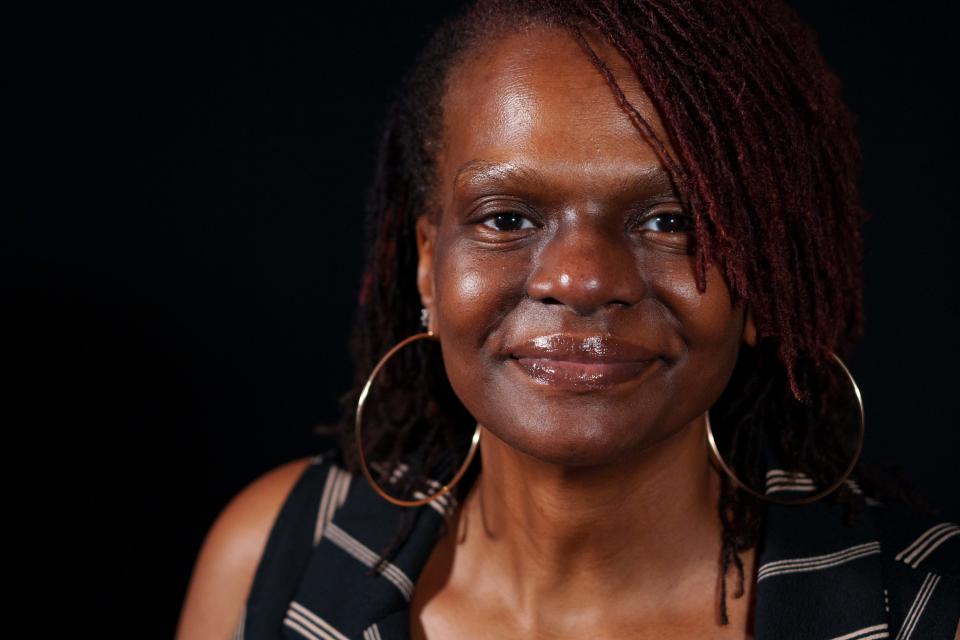
The report's authors, who relied on data scraped from the Psychology Today therapist directory in June, found that across 45 major U.S. cities, the ratio of white persons to white therapists in the U.S. is 307:1.
That's more than three times better than the ratio of BIPOC persons to BIPOC therapists, which they found was 1,002:1, indicating a nationwide shortage, though the data was limited to therapists with listings in Psychology Today and did not include psychiatrists.
Assuming someone is getting good quality care, the race and ethnicity of the therapist should not affect outcomes, but it can affect a patient's comfort level and even willingness to seek care, some mental health experts say. And that's important because without treatment, depression, anxiety, grief, trauma, substance misuse or other mental health issues can lead to harmful coping mechanisms that prevent people from having healthy relationships and from meeting professional and personal goals.
"Having a provider and client ethnicity match, what I've seen is that it doesn't affect outcomes as long as you have someone who is providing good care, who is well-trained and who is experienced and is working in an evidence-based program or practice," said Joanna Kim, an assistant professor of psychology at Arizona State University.
But people of color often prefer someone who is an ethnic match right off the bat, at the stage when they are choosing a provider, or even choosing whether or not to see a mental health provider, Kim said.
Because of a number of factors, including the aftermath of the COVID-19 pandemic, many mental health providers aren't taking new clients or aren't insurance matches right now. So finding a provider of color often isn't even an option.
Rep. Troy Carter Sr., D-La., in July introduced the Mental Health Workforce Act, which addresses what he calls the "urgent crisis of the lack of diversity among mental health care providers" in the U.S.
Among other measures, the bill would include incentives for students at historically Black colleges and universities to pursue careers as mental health care practitioners by offering student loan forgiveness in exchange for a commitment to serving communities of color.
Kelli Randon, a Black therapist who owns Lenity Art and Wellness in Phoenix, said she's had constant high demand since opening her practice in 2021. Demand is so high that she's not taking new clients at the moment, though the other Black therapist in her practice is able to see new patients.
Linda Ruvalcaba, a bilingual Latina therapist in Phoenix who owns Empieza Aquí Counseling, is all booked up, too.
Both Randon and Ruvalcaba said they see patients of all racial and ethnic backgrounds, but most are people of color.
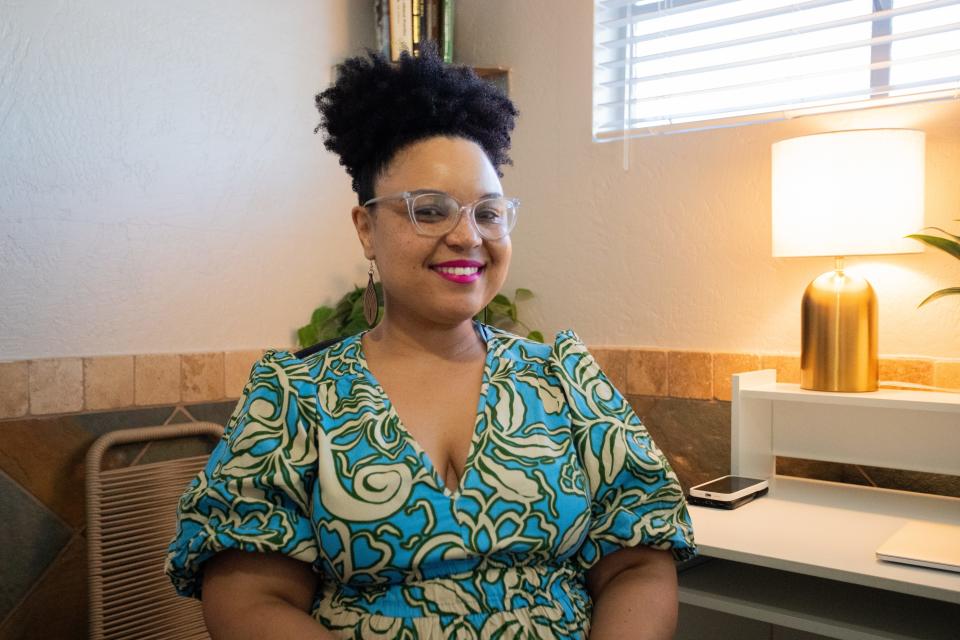
"I think people really do identify with me," said Ruvalcaba, who grew up in the border community of San Luis and whose parents grew up in Mexico. "They maybe know that there are a couple less things that they have to over-explain to me."
Randon's clinic identifies itself as a place for people of color "because we are going through the same lived experience as a person of color in this country," she said in a recent interview.
"They don't have to try so hard. … It's just a safety thing I think, and for me, that's foundational for the therapy, is for clients to feel like they can be completely themselves and be safe," Randon said. "I would say maybe 90% of our clients are people of color. And I would say 80% have probably said to me in a consultation something like 'I was looking for a person of color or I was looking for a Black therapist, and I just need that. So that's why I'm here.'"
'Recruitment is very difficult'
The stigma around mental health care is lifting, including in minority communities that don't have a history of seeking care. And more people of color are accessing higher education, which makes some health experts hopeful for a future workforce that is more diverse, though it's "nowhere near where it needs to be," said Manuel Zamarippa, who is president of the National Latinx Psychological Association.
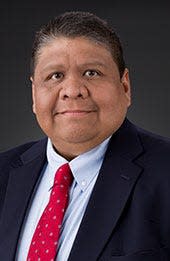
"We have about a thousand members now, but it should be a lot more," he said of the association. "There definitely is a shortage and it happens to follow our educational gap in general, from high school to college to graduate school. … Not many of our population goes into mental health fields, and that adds to the lack of representation."
Finding Indigenous therapists is "doubly hard" right now because of an overall shortage of health care workers, including mental health providers, said Walter Murillo, CEO of Native Health.
"Recruitment is very difficult," he said. "It takes months, half a year to find recruits and ultimately onboard somebody. It's much harder now than it's ever been."
Murillo said Indigenous therapists have an automatic connection to Indigenous patients because they understand generational trauma, including historic trauma associated with government boarding schools that forced Native Arizonans to speak English and discard their traditional clothing, food, language and rituals.
While the majority of people in Arizona who have taken their own lives since 2017 have been white, the highest rate is consistently among American Indian and Alaska Native people, state data shows.
Janice Yazzie, a therapist at Native Health who grew up on the Navajo reservation, said she has both Indigenous and non-Indigenous clients. Her Indigenous patients include people from all different Native tribes, "and we all share similar cultural experiences, which helps me to connect with them on a cultural level, if that makes sense," she said.
Having a shared background is helpful in fostering a "therapeutic alliance" with the patient, said Yazzie, who added her role models — her mother, aunts, grandmothers and other women in her family — continue to inspire her work in caring for clients.
"I think it's more difficult to form that alliance if they don't trust their provider," Yazzie said. "What our Native people have experienced, you know, some have been traumatized. … Sometimes it's hard for them to trust their health care providers."
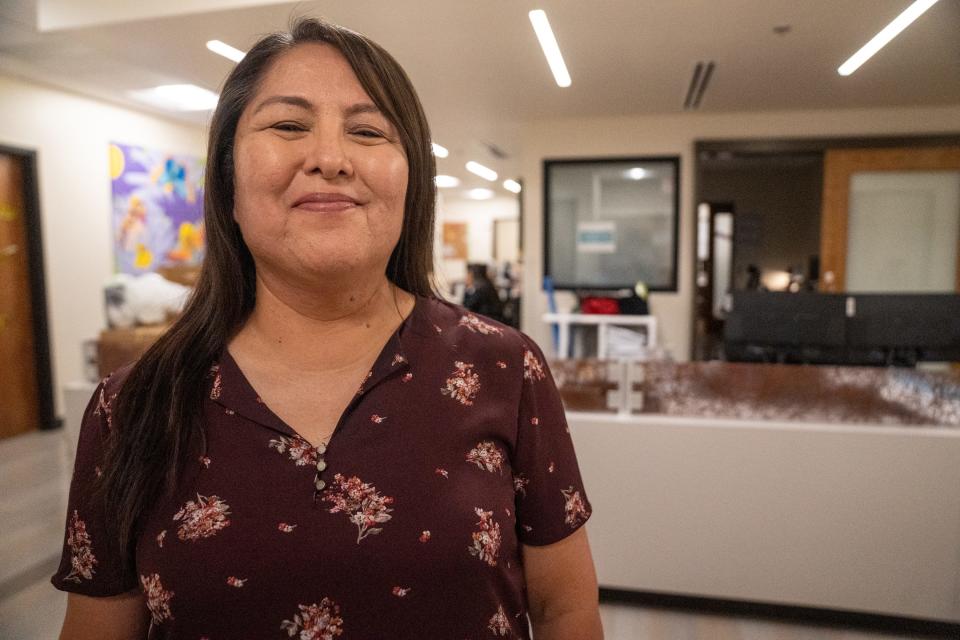
Crystal Lee, who is the founder and CEO of Tempe-based Indigenous Health, grew up on the Navajo reservation and has a doctorate in public health, which she sees as interconnected to mental health. Barriers to accessing medical care, including mental health care, is linked to disparities in health outcomes, including life expectancy, Lee and others say.
Lee, who served as a tribal health adviser to the Obama administration, said the Native people who get behavioral health services at Indigenous Health often tell her that they've had negative experiences seeking help from white therapists, including a feeling of disconnect.
Both of Lee's grandfathers were Navajo medicine men, she grew up speaking Navajo and she has the lived experience of growing up on tribal land, where a lack of running water and electricity is common, as are U.S. policies that hinder tribal infrastructure, she said.
"When they look at me and see that I am the owner and the leader and our team is Native, that in itself breeds a whole system of hope and inspiration," Lee said. "They see me and know I come from the rez. I am a rez girl at the end of it all. I can connect with them. There's this level where they feel heard and they feel visible."
Lack of Spanish-speaking therapists in U.S. a 'crisis'
While U.S. Census numbers show 37% of Phoenix residents speak a language other than English at home, the CounselingPsychology.org report found that Phoenix was one of the five major U.S. cities that was the least supported by multilingual therapists. The others were Kansas City, Houston, Memphis and Oklahoma City.
The U.S. Census Bureau says 22% of Americans speak a language other than English at home, yet that's not reflected in the mental health services that are available, said Kim, the ASU professor.
"We just need funding and policies that support multilingual training," Kim said.
The CounselingPsychology.org report findings reflect other studies and data on on a national level that show that the mental health provider workforce continues to be dominated by white people. About 81% of U.S. psychologists were white as of 2021, according to data from the American Psychological Association, and 5% were Black, even though Black people comprise 12% to 14% of the U.S. population.
A 2020 study published by researchers from the Johns Hopkins University School of Medicine in the journal Academic Psychiatry found that 10.4% of practicing psychiatrists are Black, Latino or Native American, compared with their proportion of 32.6% of the U.S. population.
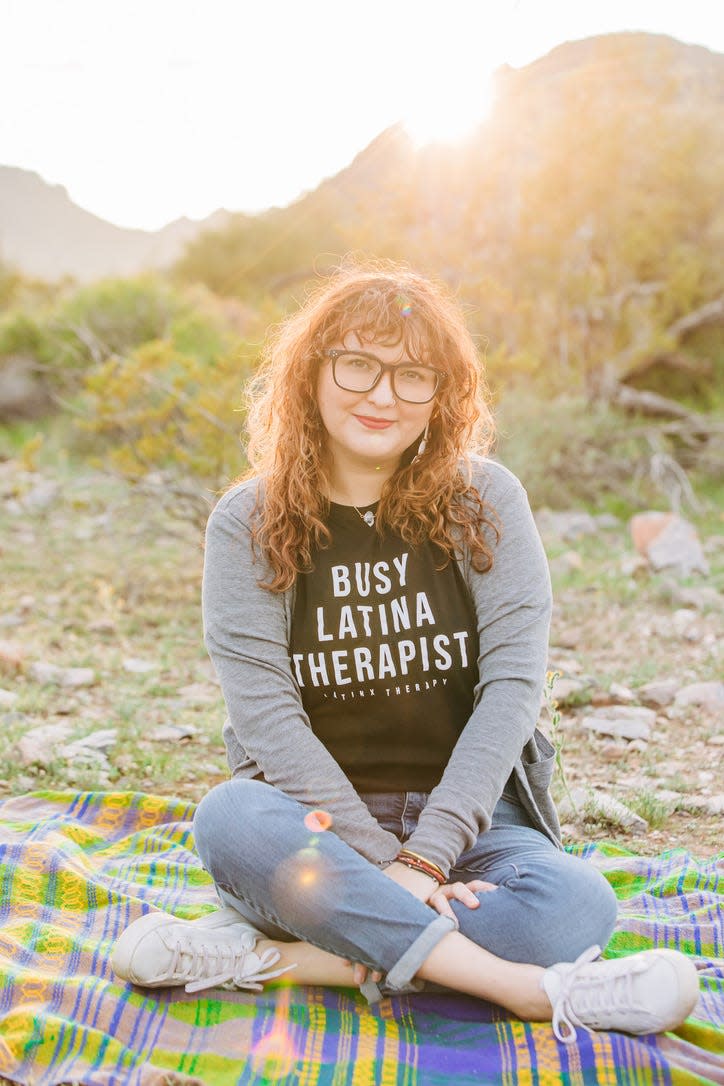
Zamarippa of the National Latinx Psychological Association classifies the shortage of Spanish-speaking therapists as a crisis in the U.S., where more than one in 10 people live in a Spanish-speaking household, the latest U.S. Census numbers show.
In Phoenix, those percentages are far higher: 30% of adults ages 18 and older and 35% of children ages five through 17 live in Spanish-speaking households. Yet there are only a handful of U.S. colleges and universities that train Spanish-speaking mental health providers, Zamarippa said.
The shortage means not everyone is getting the mental health care they need, he said. Translators may help in some instances, but not all.
"If someone's in a particularly vulnerable place or they've already had a lot of difficulty trusting the process of coming to therapy, that becomes another obstacle," Zamarippa said. "And then sometimes people won't even come back. And they might not even be able to name that reason, but they may not come back because they just don't feel comfortable."
Arizona is on the U.S. border with Mexico, but Spanish-speaking licensed therapists are hard to come by "100% of the time," said Mike Renaud, CEO of Valle del Sol, a federally qualified community health center.
"That's one of the positions we will never not be looking for," Renaud said. "I have four national firms looking for therapists and psychiatrists, physicians of all backgrounds, with an emphasis on Spanish-speaking as a priority."'
The challenge of finding both BIPOC and multilingual therapists is occurring amid an ongoing shortage of mental health providers in general that intensified during the COVID-19 pandemic as people experienced higher than usual levels of anxiety, grief and isolation, and as stigma surrounding mental health problems declined.
The shortfall makes it difficult for community health clinics to hire Spanish-speaking and BIPOC therapists because there's such high demand that they can earn more money going into private practice, said José Luis Madera, a bilingual licensed professional counselor and manager of integrated behavioral health at Valleywise Health, which is the public health system for Maricopa County.
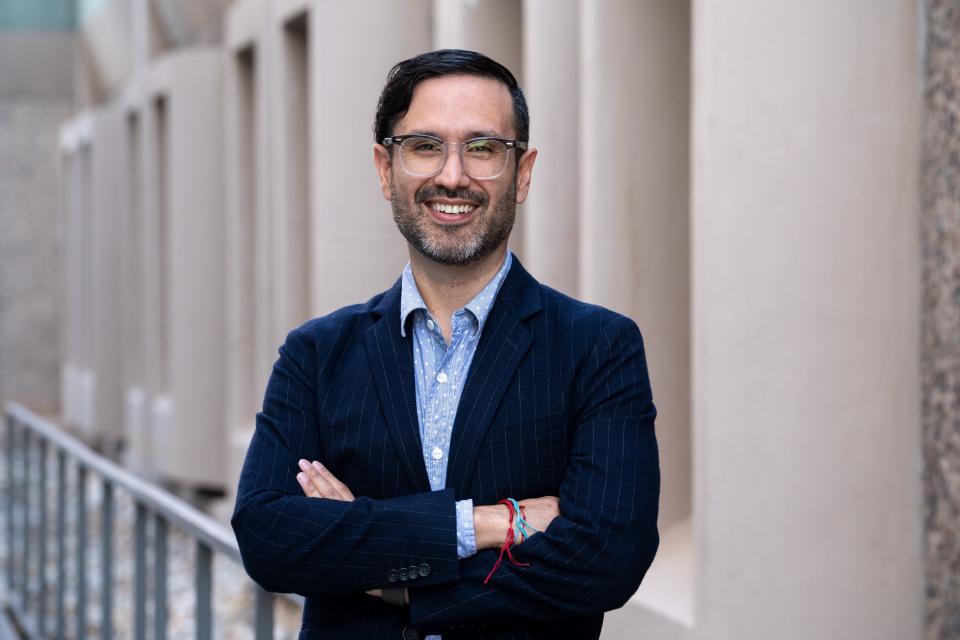
Some mental health providers say the U.S. needs an infrastructure for educating Spanish-speaking therapists, including having more bilingual clinical supervisors for people seeking licensure. Madera used to work for a mental health clinic in the Phoenix area that hired Spanish-speaking providers from Puerto Rico, underscoring the difficulty of finding them here.
Madera said having Spanish-speaking therapists and therapists of color helps people in minority communities to more quickly connect with mental health care.
"They just feel like they're working with someone like them instead of someone that doesn't understand their struggles," he said.
'Heartbreaking': Refugees, asylum seekers wait for mental health care
Nearly 6,000 refugees moved to Arizona during the federal fiscal year that ended Sept. 30, and the most common languages they speak are Spanish, Kinyarwanda, Rohingya, Kiswahili and Ukrainian.
But unless it's Spanish, there aren't typically therapists available to speak to refugees in their native language, said Wen-Chien Lin, clinical manager at the International Rescue Committee in Phoenix.
Frequently, there aren't therapists available at all, she said.
"The wait time could be three to six months long," she said. "It's heartbreaking, but I'd say the problems really lie within systemic inequities."
It's more difficult for community health clinics to see refugees because there's a need for translation services and additional time, Lin said. And it's more difficult for refugees because the forms one fills out to see a health provider are often in English.
Everything is more cumbersome for people who don't speak English, she said.
"There's no incentive to serve refugees. Those mental health agencies do not lack clients. They already have a huge caseload," Lin said.
If a refugee has a serious mental illness, Lin said, she works to avoid having that person placed in a psychiatric hospital "because a lot of times they don't have a good experience" and can end up traumatized rather than healthier.
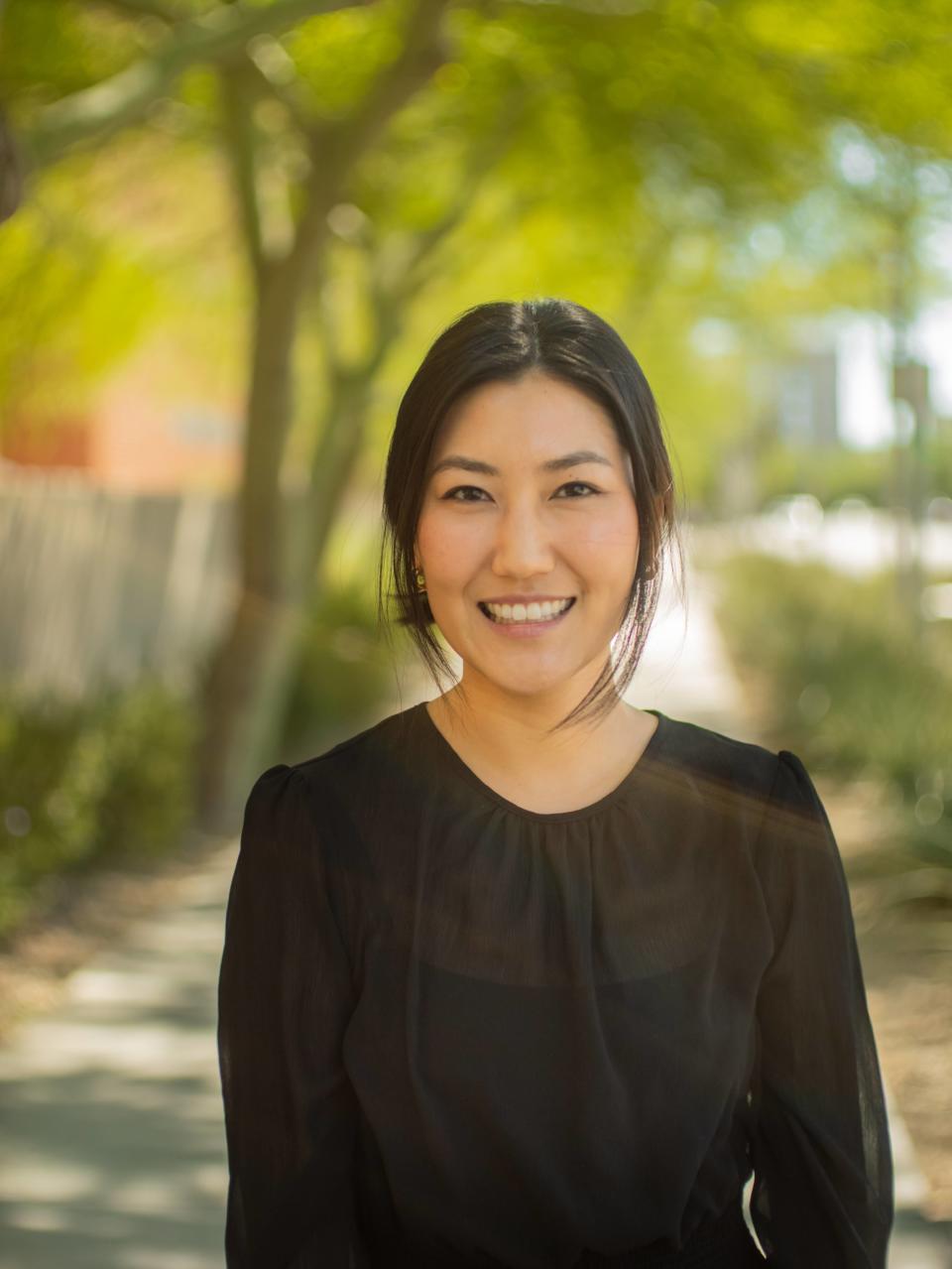
"That can be quite intense. They may not understand the systems, or understand what is happening," she said. "And if we are not providing adequate interpretations and helping them to know what is happening every step of the way. Imagine if you are isolated from your family in a hospital. That could be quite terrifying."
Kim, the assistant professor of psychology at ASU, said language is a huge issue for mental health patients, but especially for people with serious mental illness. She recalled a situation when a patient was having hallucinations and paranoia and was hospitalized. The patient spoke an African language, and there was no translator available to go to the inpatient unit. So the hospital used a telephone interpretation service.
"Here's someone who's already paranoid," Kim said. "They think, 'people are tracking me and then I have to talk on the telephone and then pass the telephone back and forth.'"
Spanish-speaking therapists can be overworked, undercompensated
Ruvalcaba, the Phoenix Latina therapist, spends a lot of her free time advocating for therapists of color from the Latino community. She began connecting with other BIPOC therapists after having a negative experience working as a clinical manager at a community mental health clinic in Phoenix, she said.
Among the problems she cited a shortage of Spanish-speaking therapists, which meant that anyone who did speak Spanish was overworked yet not adequately compensated for that work, she said.
"It was definitely very white-dominated," she said of the leadership and staff at the clinic where she worked. "The population we were serving was not necessarily white-dominated."
Ruvalcaba ultimately quit her job and went into private practice, though she feared taking that step, primarily because she knew of no other Latino therapists in private practice who she could hold up as role models.
She felt some validation when she connected with some other women of color who also had felt forced to leave jobs as clinical managers at mental health clinics. She now spends a lot of time connecting with other Latino therapists and hopes to empower them by sharing firsthand experiences and tips about working in a white-dominated profession.
Berry spent 14 years as a 911 dispatcher in Phoenix before going back to school to become a licensed professional counselor. She grew up on the Illinois side of St. Louis in a predominantly Black community and didn't ever consider mental health as a career, didn't know anyone who ever sought mental health treatment, and didn't know what a mental health counselor was until she was well into adulthood.
Berry is hoping that Black Therapists in AZ, which holds networking and education events, will help inspire younger Black people in the state to consider mental health careers.
Reach health care reporter Stephanie Innes at Stephanie.Innes@gannett.com or at 602-444-8369. Follow her on X, formerly known as Twitter: @stephanieinnes.
This article originally appeared on Arizona Republic: Spanish-speaking therapists, therapists of color are in short supply

